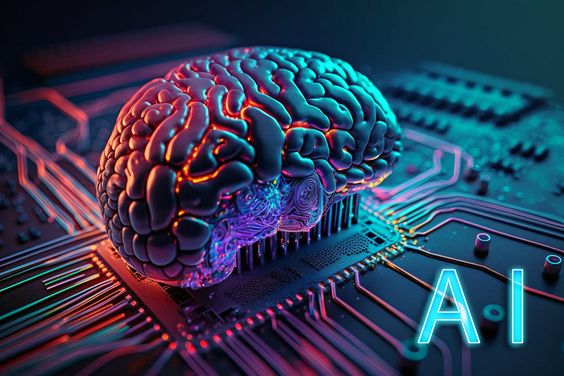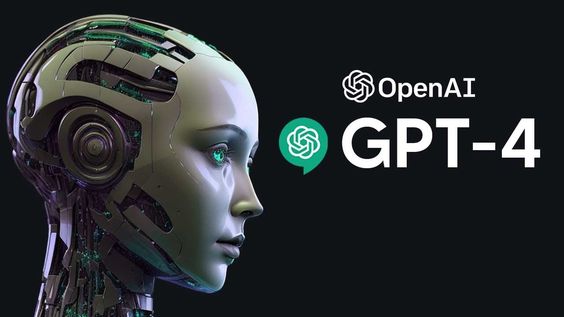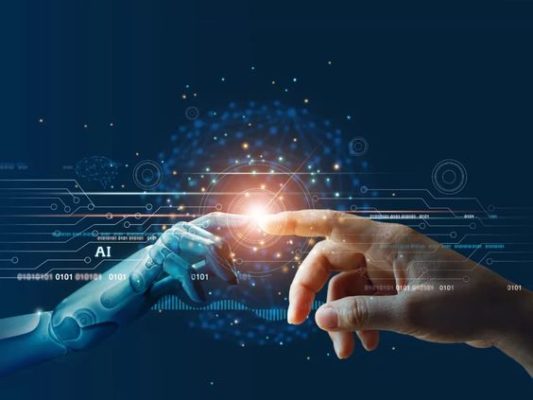AI's Future Impact: Forecasting Developments and Societal Effects
In the rapidly evolving landscape of Artificial Intelligence (AI), this article aims to forecast potential developments and the resulting impacts on society, economy, and culture. We will explore advancements in machine learning algorithms, the widening applications of AI, and the emergence of Artificial General Intelligence (AGI). Additionally, ethical, legal, and societal challenges posed by AI will be addressed, emphasizing the importance of ensuring responsible and transparent AI deployment in the future.

Introduction
Artificial Intelligence (AI) has reached a pivotal point in its development, with significant advancements made in recent years. AI systems are now capable of performing complex tasks, such as natural language processing, image recognition, and decision-making, with remarkable accuracy. These advancements have propelled AI into various sectors, including healthcare, finance, transportation, and entertainment, revolutionizing the way we live and work.
Predicting the future development of AI is crucial due to its profound impacts on society, economy, and culture. As AI technologies continue to evolve, they have the potential to reshape industries, disrupt traditional employment models, and influence societal norms and behaviors. Understanding and anticipating these impacts is essential for policymakers, businesses, and individuals to navigate the opportunities and challenges presented by AI-driven innovation effectively. By examining potential future scenarios and their implications, we can better prepare for the transformative changes that lie ahead in the era of Artificial Intelligence.
Potential Developments in AI
Advancements in machine learning algorithms
Expansion of AI applications
Emergence of Artificial General Intelligence (AGI)
Impact on Society, Economy, and Culture
Societal impacts
Economic impacts
Cultural impacts
In summary, the impact of AI on society, economy, and culture is multifaceted, encompassing changes in employment dynamics, ethical considerations, economic opportunities, shifts in human interaction and communication, and transformations in cultural expressions and creativity. By addressing the challenges and harnessing the opportunities presented by AI, societies can navigate the transformative changes brought about by AI technologies and ensure they contribute to positive societal outcomes.
Challenges and Considerations
Ethical and regulatory challenges
Addressing societal concerns
In summary, addressing the ethical, regulatory, and societal challenges posed by AI is essential to realize its full potential for positive societal impact. By prioritizing privacy, fairness, education, and inclusivity in AI development and deployment, stakeholders can mitigate risks, promote responsible AI use, and ensure AI technologies contribute to a more equitable and prosperous future for all.
Conclusion
Throughout this exploration of AI's potential developments and impacts, we have uncovered the transformative changes AI is poised to bring to society, economy, and culture. From advancements in machine learning algorithms to the expansion of AI applications across various sectors, the implications of AI on employment, economic growth, human interaction, and cultural expression are profound and far-reaching.
As AI continues to evolve and integrate into various aspects of our lives, it is imperative to prioritize ethical considerations and responsible AI governance. By ensuring transparency, fairness, and accountability in AI development and deployment, we can mitigate risks, address societal concerns, and build trust in AI technologies. Ethical AI practices and regulatory frameworks play a critical role in shaping the future trajectory of AI, guiding its responsible and beneficial integration into society.
Despite the challenges and concerns surrounding AI, it holds tremendous potential to advance human progress and address societal challenges. From improving healthcare delivery and enhancing productivity to fostering innovation and creativity, AI technologies have the power to drive positive societal outcomes. By harnessing AI's capabilities for social good and prioritizing human-centric





